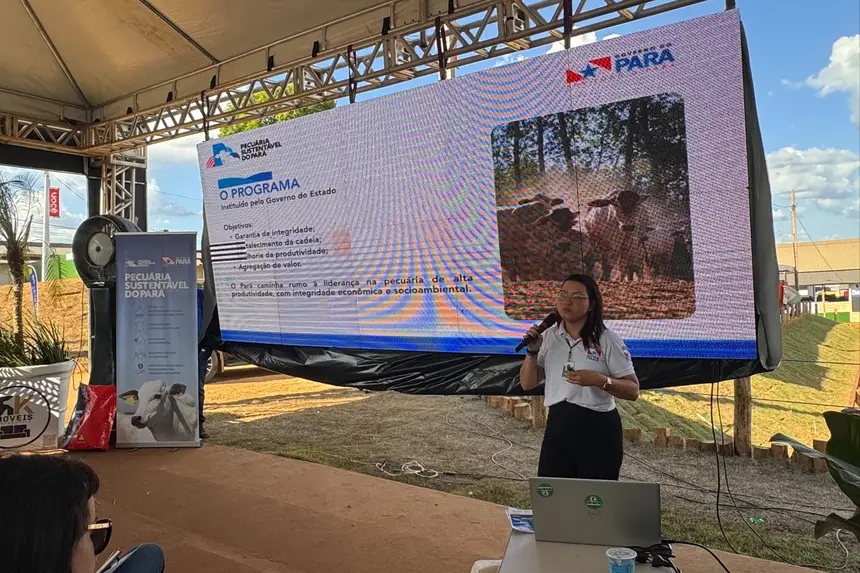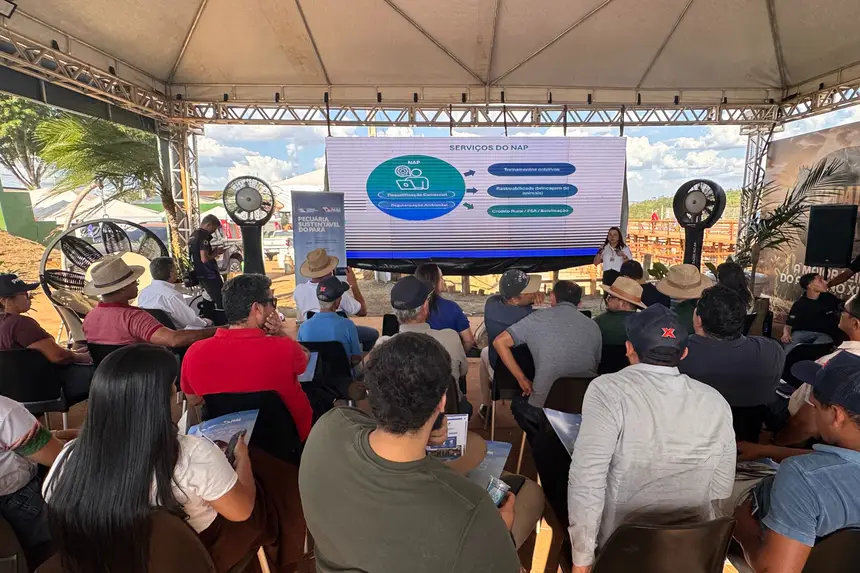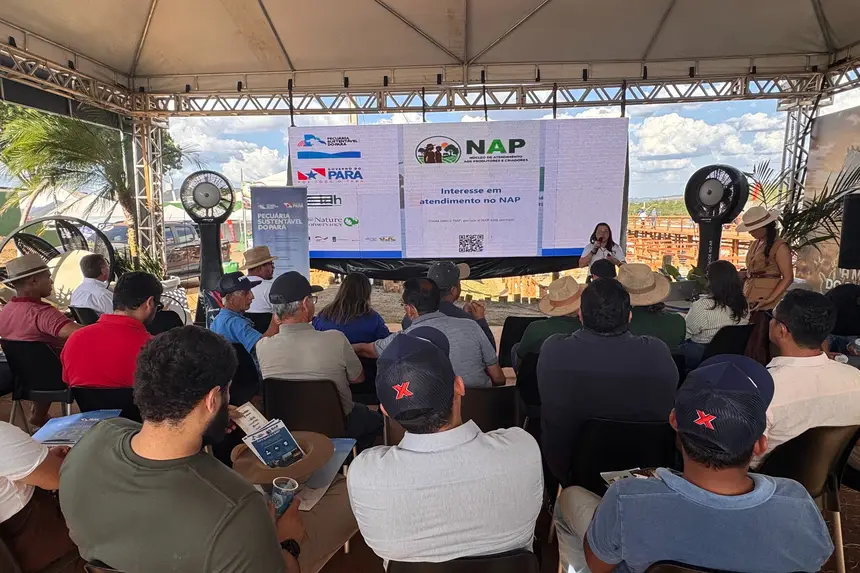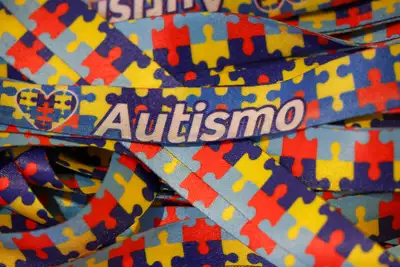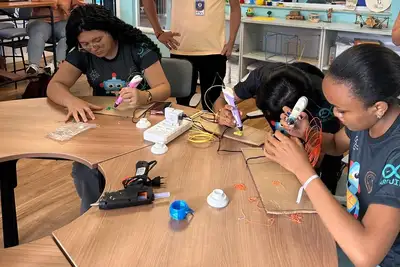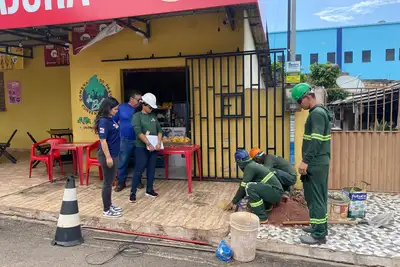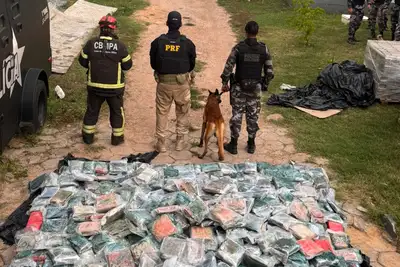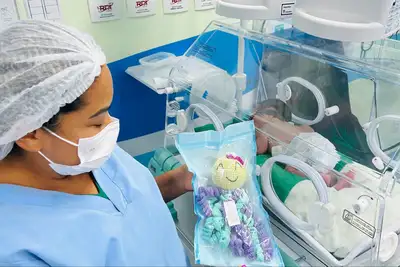State launches Service Center for Producers and Breeders in Altamira
Rural producers gain a specialized service point that will offer technical support and guidance
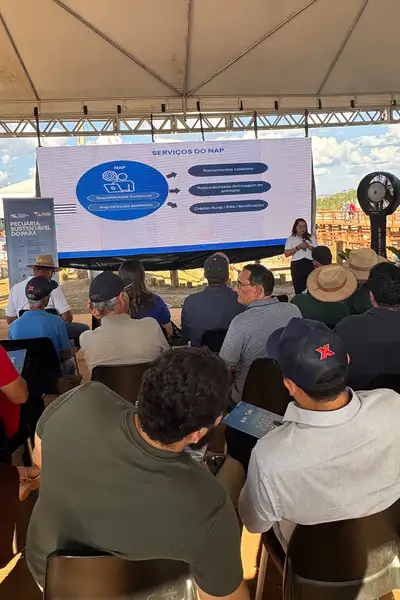
Altamira, a municipality that houses the fourth largest cattle herd in Pará, has once again become a stage for great opportunities in the agricultural sector with the realization of the 42nd Agricultural Fair of Altamira (Expoalta 2025). During the event, the Government of the State of Pará, through the Secretary of Environment, Climate and Sustainability (Semas), the Secretary of State for Family Agriculture (SEAF), the Secretary of State for Agricultural Development and Fisheries (SEDAP), and the Agricultural Defense Agency of the State of Pará, launched the Service Center for Producers and Breeders, which will be a specialized service point for rural producers, offering technical support and guidance on environmental regularization, animal traceability, and access to incentive programs.
“The Service Center for Producers and Breeders is another action that brings the State Government closer to rural communities. Our goal is to strengthen sustainable production and ensure that the producer has access to the information and services necessary to be regularized in the market,” highlighted the head of Semas, Raul Protázio Romão.
“The Center will basically function as a consulting office, which will meet the needs of producers in a very qualified manner, with the help of institutions, with the help of the State Government, with the municipal government, and, importantly, at zero cost, so the producer will seek the Center, they will be guided, diagnosed, and, when necessary, regularized so that their rural property is compliant with the current Environmental Relations Law,” explained Rony Almeida, agronomist and currently coordinator at the Agriculture Department of the municipality of Altamira.
“We have been following the process of implementation and mobilization among the institutions, such as TNC, GIZ, Semas, and others involved, for the Center to happen. Over time, meetings and arrangements were made to bring this structure to rural producers, and we are happy, with the expectation that we will have quality service and the correct direction for the environmental regularization process that is so important to producers,” said Thais Linhares, a producer and member of the Rural Union of Altamira.
“I feel that the best way to solve the environmental problem is to bring knowledge and information to the producer about the issue of environmental regularity, in addition to presenting clarifications and the innovations that the Center will bring to our reality,” said Jorge, president of the Rural Union of Altamira.
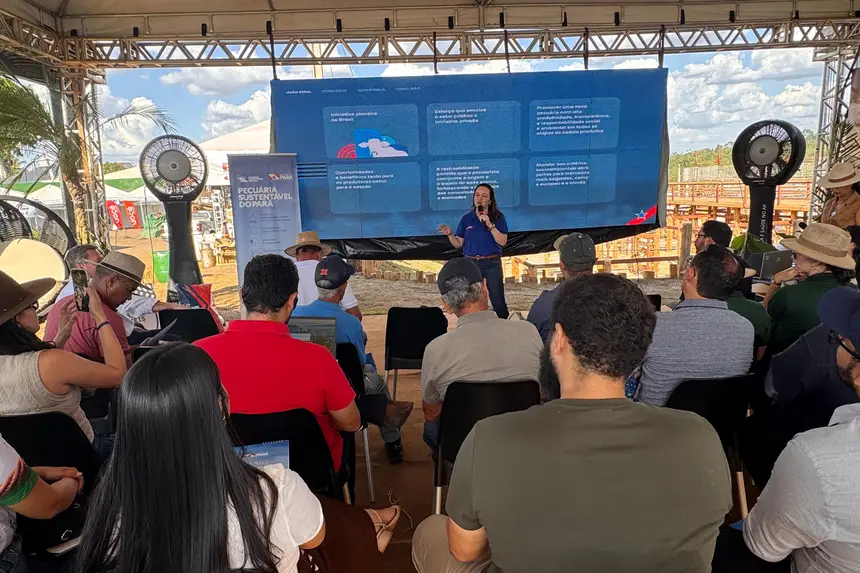
Individual and mandatory identification - During the technical programming of the fair, the Agricultural Defense Agency of Pará (Adepará) also reinforced the measures of modernization and sanitary security with the mandatory individual identification of animals. Starting in January 2026, all cattle and buffaloes that transit in the state must be identified with visual and electronic tags, ensuring traceability and enhancing the value of Pará's livestock in national and international markets.
Producer José Roberto Silva, a beef cattle breeder in Altamira, celebrated the arrival of the center: “We feel that the Government is looking at the producer. Having a support point facilitates access to public policies and technical assistance. This helps a lot for those who want to work sustainably.”
Meanwhile, producer Patrícia Baldo, a member of a traditional livestock family, highlighted the importance of the new phase of herd identification: “With the electronic tag, control over the management and origin of the animals becomes much more efficient. It is an important advance for those who want to grow responsibly and transparently.”
In addition to technical lectures and panels on environmental regularization, Expoalta 2025 brought together producers, technicians, and institutions in a large showcase of innovation, technology, and opportunities for the field.
“Altamira is an example of the productive potential of Pará. Semas has been working to ensure that this growth comes accompanied by sustainability, inclusion, and appreciation of local producers,” concluded the head of Semas.
Text: Lucas Maciel/ Ascom Semas


